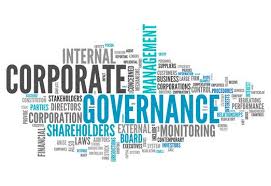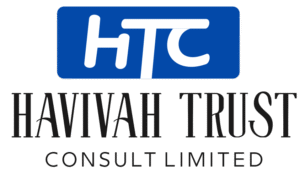
Introduction
Let’s be honest – when most Nigerian business owners hear “corporate governance,” their first thought is usually, “That’s for oyinbo people, not for us here.” But that’s far from the truth. Corporate governance isn’t just a Western boardroom buzzword; it’s the backbone of any well-structured organization. It defines how a company is led, how decisions are made, and how accountability is maintained at every level.
In a business environment where trust, transparency, and ethics are often in short supply, strong corporate governance can set your company apart. It helps you attract investors, improve performance, and build a reputation that lasts. In this post, we’ll break down what corporate governance really means, its key features and characteristics, whether it truly works in Nigeria, and—most importantly—why your company can’t afford to ignore it.
This article is to improve your understanding of Corporate Governance in Nigeria and how it benefits any organization. As we delve into the Nigerian code of corporate governance and the principles by which they operate, we provide knowledge that will help businesses and organizations improve their governance structures and, overall, in our own quota, contribute to a more transparent, accountable, and resilient corporate landscape in Nigeria.
What is Corporate Governance?
Corporate Governance in Nigeria is a system of rules and principles that ensure companies are accountable, transparent, and managed in the interest of shareholders and other stakeholders. It is primarily governed by the Companies and Allied Matters Act (CAMA) 2020 and the Financial Reporting Council of Nigeria (FRCN) Act.
Corporate governance in the Nigerian context encompasses the system by which companies are directed and controlled, taking into account the roles and responsibilities of the board of directors, the management team, shareholders, and other stakeholders. It seeks to promote ethical behavior, risk management, compliance with legal and regulatory requirements, and the protection of Shareholders’ interests.
Features
Key features include the Nigerian Code of Corporate Governance, which provides a framework that can be supplemented by sector-specific guidelines, and the roles of regulators like the Securities and Exchange Commission (SEC) and the Corporate Affairs Commission (CAC). Recent developments include amendments to CAMA and the introduction of the 2023 FRCN Act, which aims to reinforce accountability and compliance.
Characteristics
The common pillars in Corporate Governance are accountability, transparency, fairness, and responsibility.
There are three main types of corporate governance structures: internal mechanisms, external mechanisms, and independent audits. Each plays a unique role in ensuring accountability, transparency, and ethical decision-making within an organization. Internal mechanisms focus on the company’s internal control systems—its leadership, management processes, and board oversight. External mechanisms involve the influence of external stakeholders such as regulators, investors, and the market environment in enforcing good governance. Finally, independent audits serve as a neutral checkpoint, evaluating financial practices and ensuring that the company’s actions align with established standards. Together, these structures form the foundation upon which trustworthy and resilient organizations are built.

Why Corporate Governance
Corporate Governance ensures fair treatment of all shareholders, particularly minority shareholders, preventing any single group from having undue influence over corporate decisions. This protection encourages shareholders’ participation and investment.
Corporate Governance isn’t just about avoiding trouble; it is a key driver for long-term profitability and success.
Corporate governance and compliance are more important than ever, especially for businesses in Nigeria. With laws constantly evolving and the marketplace becoming more competitive, companies must have strong governance structures in place and follow all the necessary regulations. Corporate governance is basically about how a company is run – from who’s in charge to how decisions are made. It’s all about fairness, transparency, and accountability.
Does it really work in Nigeria?
The Nigerian Code of Corporate Governance (2018) is a set of principles issued by the Financial Reporting Council (FRC) to promote best practices in Nigerian companies.
It applies to both public and private companies and is based on an “Apply and Explain” philosophy, requiring companies to demonstrate how they comply with its principles. This philosophy simply means that companies are required to report on their compliance by explaining how they have applied each principle to achieve the intended outcomes.
The code is not a set of rigid rules but a framework of principles that companies must apply. It covers a wide range of topics such as:
• Board of directors’ responsibilities and composition
• Business conduct and ethics
• Shareholder relations
• Assurance and Sustainability
• Transparency
• Implementation and compliance
The goal of this Code is to improve public confidence and attract trade and investment by increasing transparency, integrity, and accountability in the Nigerian business environment.
All companies must comply to avoid penalties, which can be very severe.
Nigerian companies that have embraced sound governance structures have demonstrated resilience, attracted foreign investments, and gained a competitive advantage in their sectors.

How will it help your company?
A company that applies the core principles of good corporate governance, fairness, accountability, responsibility, disclosure, and transparency will usually outperform other companies and will be able to attract investors, whose support can help to finance growth. I mean, a company that seems to have its head on its shoulders and also knows what they are doing is definitely a green flag.
Let me show you how it’s going to help your company
The code mandates annual board evaluations, which must include evaluations of board committees and individual directors. At least every three (3) years, the board and corporate governance evaluators must be facilitated by an independent consultant, like Havivah Trust Consult Limited. Summaries of the evaluation report are to be included in the company’s annual report.
Contact Us
Havivah Trust Consult Limited today. We are readily available to assist you with consulting and advisory services
Whether you require Business strategy development, compliance services, operational excellence, human resource management, or technology & innovation, Havivah Trust Consult Limited is your Trusted Partner.
Call us at 09036890920 or email us at havivahtrustconsultlimited@gnail.com to schedule a consultation.
